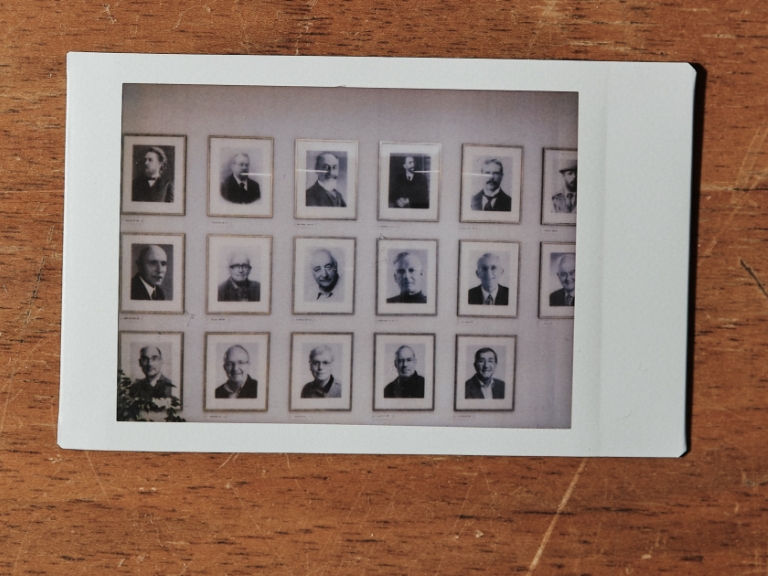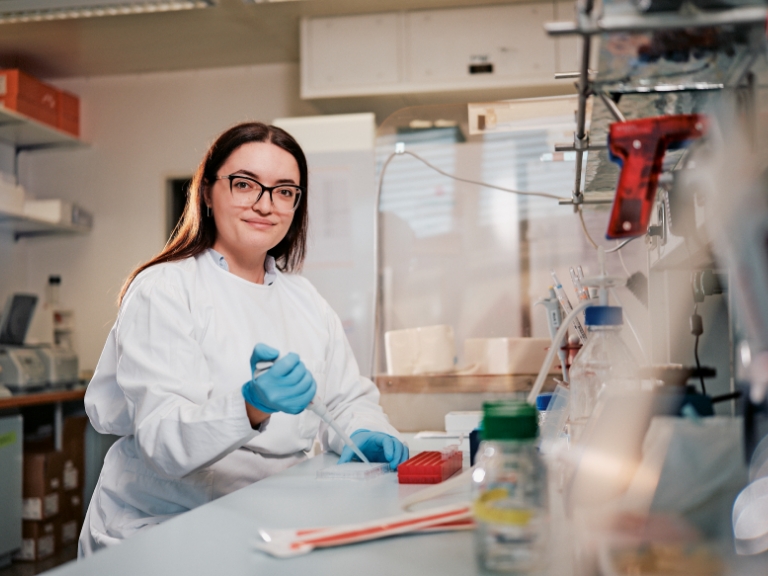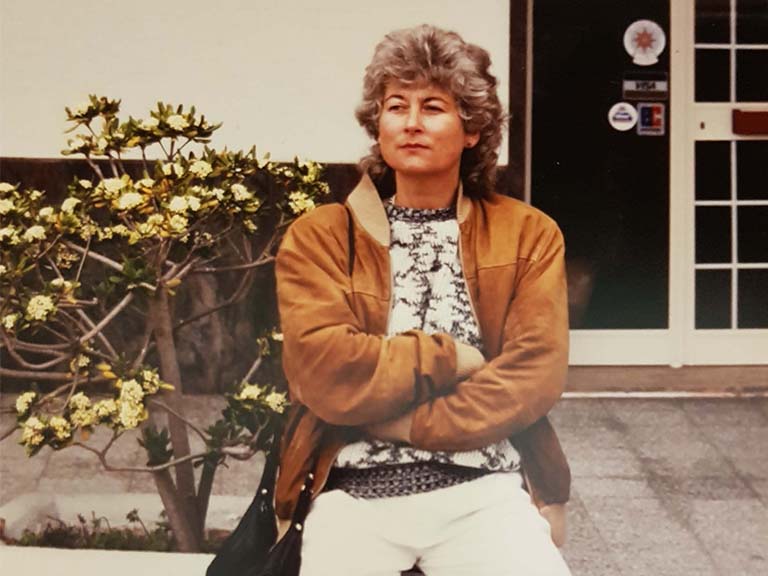In focus
“I found my alma mater to be very formative”
Three different generations, three very different student lives. We met with alumni of the University of Bern in the Länggass district for an informal exchange and ended up chatting for much longer than originally planned. So many topics, so many memories!
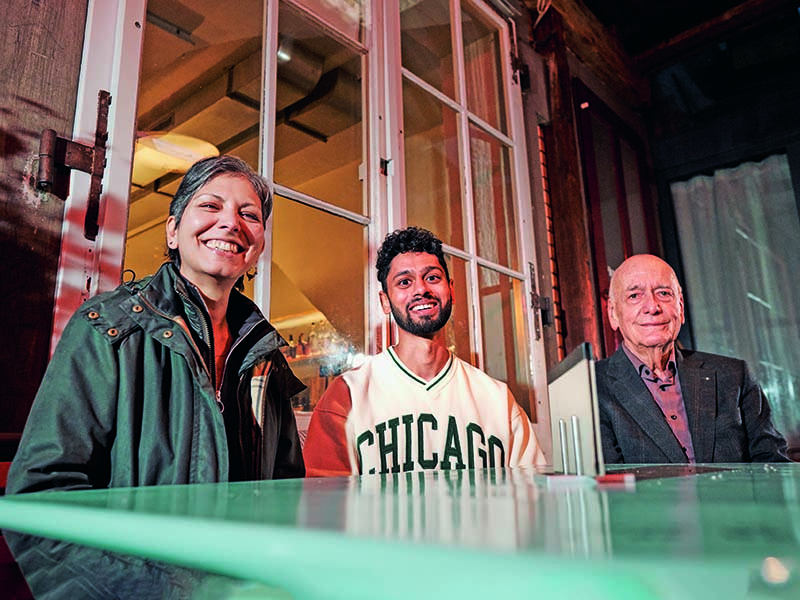
Rolf Schneider: Above all, I remember the good team spirit among the students – the entire student body of the faculty of law and economics went on joint excursions, all the students plus the professors. And another formative memory: In the lectures, the windows had to be closed at all times because construction noise was constantly coming from outside. In 1957, the Grosse Schanze was excavated, with a huge construction site just behind the main University building.
Dominique Nagpal: I was certainly not a typical student of my generation. I was almost 28 years old when I started. I already had a professional life, managed people during my studies, and I had to reconcile all that. For me, my studies were definitely more of a path than an objective; I didn’t want to simply complete a degree as quickly and conveniently as possible. I still remember how I really enjoyed a good lecture, how I wanted to benefit from this knowledge, while others might have preferred to have gone to the Marzili outdoor pool.
Afreed Ashraf: That really sounds like a touch of nostalgia when I listen to you. For me, of course, it starts with the numerus clausus and the great load off your mind: Now I’m here!
Dominique Nagpal: Did you always want to be a doctor?
Afreed Ashraf: Yes. Just recently, an old friend told me: “Afreed, you said in first grade that you wanted to be a doctor!” I found my studies to be incredibly varied. One thing you never forget, for example, is that for the first time in the anatomy room, there is a real leg on the table, covered with sheets. And the lecturer welcomes the maybe 50 to 60 students: Today, you will experience something that very few students get to see – regard it as a privilege. And everyone looks at each other and wonders what to expect. The main building, on the other hand, is hardly a reference point for me, as we didn’t have any lectures there.
Rolf Schneider: How many of there were you in the lectures?
Afreed Ashraf: 250 to 300 in the lecture hall, I think that total has increased to around 400 now. However, this changed a lot in the internships, which are done in groups of five.
Dominique Nagpal: Ah, like in the TV series “Grey’s Anatomy”?
Afreed Ashraf: That’s basically the way you have to imagine it, yes.
About the person
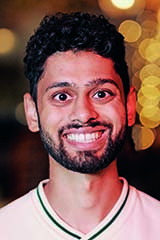
Afreed Ashraf
(*1997) completed his bachelor’s and master’s degree in human medicine at the University of Bern (graduating in 2023). He is currently an assistant physician in the emergency department of Lindenhofspital. He has been the host and presenter of SRF’s “Puls Check” program since August 2022. He has also set up the podcast/YouTube channel “Swissmedtalk” together with a friend from his studies, which features interviews with doctors.
Dominique Nagpal: Yes, we knew each other, especially in the master’s degree, but there weren't actually all that many of us, perhaps just 40 people in the whole year.
Rolf Schneider: We only knew a few people well. There were different people in each individual lecture course. We did notice the women though, as they were very rare specimens.
Dominique Nagpal: Ah, we had more women than men. But I guess that wasn’t the first time in the Faculty of Humanities.
Afreed Ashraf: With us, it was very much divided up because most of the sessions take place in groups of ten. So of course, we knew each other well because it is almost like being in a class. That’s when I learned a whole range of dialects because students from all over Switzerland came to Bern.
And the famous “student life”? Not much studying, lots of partying, or what was it like?Dominique Nagpal: Well, as I said, I had a rather atypical “student life”, basically none at all. During my studies, I worked part-time – first of all with an 80% workload before I went down to just 50%. You would virtually never see me at parties.
Rolf Schneider: A lot of social life centered around Unisport. That’s when I met my former school friends again, otherwise we would probably have lost touch because everyone was studying something different. And after training, people also liked to go for a beer.
Afreed Ashraf: I also spent a lot of time in Unisport, which was definitely an important social factor. It was not uncommon for people to continue studying there because you could listen to the lectures as podcasts.
Dominique Nagpal: What was it like for you in the mornings, Rolf? Did things not get going until 10 o’clock?
Rolf Schneider: Yes, and by 5 o’clock the lectures were over, and you were finished for the day.
Dominique Nagpal: That had just changed for us, with lessons often starting at 8.
Afreed Ashraf: Yes, that was normal for us, too. Not starting until 10 o’clock, that wouldn’t have been bad.
What about mandatory attendance?Rolf Schneider: At the beginning of the semester, you had to collect an attestation for each course (gets the old attestation booklet out of his folder). The costs for each course are also entered here. This had to be paid at the beginning of the semester in order to attend the corresponding lectures.
Afreed Ashraf: What about the tuition fees?
Rolf Schneider: Yes, that was on top of that, every course cost a certain amount. And at the end of the semester, you would get the professor to sign the confirmation of attendance for the lectures. Of course, there was talk of students attending at the beginning and end of the semester and not being seen often in between, but that was just a rumor.
Dominique Nagpal: Actually, we also had an attestation booklet, and attendance at a lecture was also confirmed with a signature. I remember the stress of not being able to get the required signature with at times 100 students in a lecture, and then you would have had to do the module again. Standing in line was not particularly enjoyable, especially with my other workload.
Afreed Ashraf: We had about a 50% attendance requirement, the rest was done in self-study. As I said, you could also listen to podcasts if you wanted. If the day is otherwise completely full, you can listen to a lecture at 10 in the evening, preferably at double speed, or even triple speed if necessary.
Rolf Schneider: Imagine this huge difference compared to the time when everything was written down on the blackboard at the front and then you would copy it all down in your notebook.
About the person
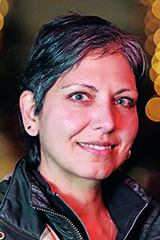
Dominique Nagpal
(*1977) was born in Bern to a Swiss mother and an Indian father. As a graduate of an art grammar school in Zurich, she returned to Bern and studied German and English literature, graduating in 2010. After many years of working in the fields of IT and business, she trained as a mediator. Today, she has returned to her alma mater as a listener in the fields of psychology and philosophy.
Rolf Schneider: We only had pen and paper at our disposal. If a fellow student was absent, you would use carbon paper – who actually knows what that is today? – placed underneath your own sheet of paper and then you had two transcripts.
Afreed Ashraf: For us, everything was digital, almost everyone came to the lectures with laptops – one lecturer called them the glowing apples.
Dominique Nagpal: In my time, things were starting to change. I really liked the copier. Because there was this folder in the library where the lecture documents were stored – you had to copy them yourself. This also required a lot of organization – often the folder was not where it was supposed to be, but doing the rounds somewhere. Then I would go back at 8 in the evening to copy the documents in peace.
Afreed Ashraf: Ah, I’ve just remembered something: We actually still had a lecturer with an overhead projector, who is famous among medical students for drawing his chemical formulas on the slides!
“You support each other, that leads to a great deal of solidarity among the students.”
Afreed Ashraf
What was your experience of the structures at the University? What was your relationship with the professors? Were there any unpleasant situations?Dominique Nagpal: I did actually experience “favoritism” but not manifest abuse of power. It was a very elitist world, and at one point I asked myself: Who would my peers be if I also followed this academic path? I didn’t really like that idea. There were lecturers who were genuinely there for us with all their hearts, who dedicated themselves to their work in a really encouraging, supportive way. And unfortunately there was the other sort too.
Did you talk to the lecturers on a first-name basis?Rolf Schneider: No way! They were absolutely people of respect, and the relationship was characterized by great respect.
Dominique Nagpal: It depended a little on the level. But there is no use of a formal and informal “you” in English anyway.
To what extent did you experience University operations as a competitive world?Dominique Nagpal: Quite a lot from the master’s degree program onward. There were tangible networks: It was very much a question of who was chosen for an academic career, lecturers certainly had their favorite students, and the competition was palpable.
Afreed Ashraf: In medicine, performance is key, that’s clear. It starts with the numerus clausus. But as soon as you get in, you support each other, that leads to a great deal of solidarity among the students. We helped each other, we made up for learning deficits. Because we knew: We just have to perform, and then we’ll get through.
“The lecturers were absolutely people of respect.”
Rolf Schneider
Is being political also part of student life? How much was it about a certain resistance in thinking, a critical attitude? It’s a bit of a pity, there’s no 68er here at the table.Rolf Schneider: In my specific case, I was more able to consolidate my political convictions, and I later went into politics. Although it has to be said that we were eagerly involved in the youth parliament when we were high school students, and I brought that attitude with me to University. So it was less about developing a critical attitude.
There was no argument with the “Reds”?Rolf Schneider: No, they were hardly present here. However, I still remember it was an advantage to read the metalworkers’ newspaper before the exam with Professor Marbach because he published there.
Dominique Nagpal: I certainly remember people being caught up in the political events of the day, and I also remember regular political discussions on campus. There was a lot about social issues, about postcolonial approaches, about what has since led to identity politics. In this respect, we certainly saw ourselves as critical contemporaries, even if this did not necessarily lead to political activism. Which certainly had to do with the fact that you meet so many people from different backgrounds. Interestingly, I saw high school more as a homogeneous elitist world than a reflection of the educated bourgeoisie.
About the person
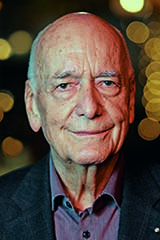
Rolf Schneider
(*1936) studied economics in Bern and Bordeaux, graduating in 1962. From 1992 until his retirement in autumn 2001, he headed the HWV higher school of economics and administration in Bern, where he also lectured in economics. In 1982, he was elected to the Cantonal Parliament of the Canton of Bern, where he served for two legislative periods. From 1986 to 1992, he was president of the liberal FDP party of the Canton of Bern.
Afreed Ashraf: Climate was already a marginal issue. Medicine is always on the move, and right now that is changing very quickly. I also remember a course in environmental chemistry. But when I talk to younger students, I notice that environmental issues are becoming even more of a focus. Social issues such as gender-sensitive medicine are now also being taught, although that was hardly an issue for us.
Dominique Nagpal: For us, some of the hot topics were certainly part of the specialist discussion. The central issue was how the canon of texts could be softened and expanded beyond the classically Eurocentric core. These may not have been demands for a system change, but there were certainly parallels with current social issues.
Rolf Schneider: I remember that Europe was a big issue for us. The EEC was founded in 1957.
Afreed Ashraf: What is that?
Rolf Schneider: The European Economic Community, which was the forerunner of the EU. It was an incredibly exciting time, when there were already very lively discussions about how Switzerland should approach this, including among us students.
“We were encouraged to think for ourselves, we were
Dominique Nagpal
Finally, a somewhat philosophical question. Looking back: Did you simply acquire knowledge during your studies, or was it more about developing your character and personality?Rolf Schneider: It wasn’t just about abstract knowledge, I was definitely impressed by the personality of the professors, all of whom were absolute luminaries in their field. This expertise was recognized and admired. Ultimately, my impression was that we were perfectly prepared for our professional lives at the University of Bern.
Dominique Nagpal: Yes, we were definitely well provided for. I found my alma mater to be very formative, very influential. We were encouraged to think for ourselves, we were “empowered” in the best sense of the word.
Afreed Ashraf: You hear time and again that students from Bern made great doctors, and I couldn’t agree more. I would certainly go down that same path again – precisely because University wasn’t just about accumulating specialist knowledge. We were actually made into doctors, and this includes not only in-depth knowledge, but also social skills.
Magazine uniFOKUS

Studying as a launchpad
This article first appeared in uniFOKUS, the University of Bern print magazine. Four times a year, uniFOKUS focuses on one specialist area from different points of view. Current focus topic: Studies
Subscribe to uniFOKUS magazineSubscribe to the uniAKTUELL newsletter

Discover stories about the research at the University of Bern and the people behind it.
